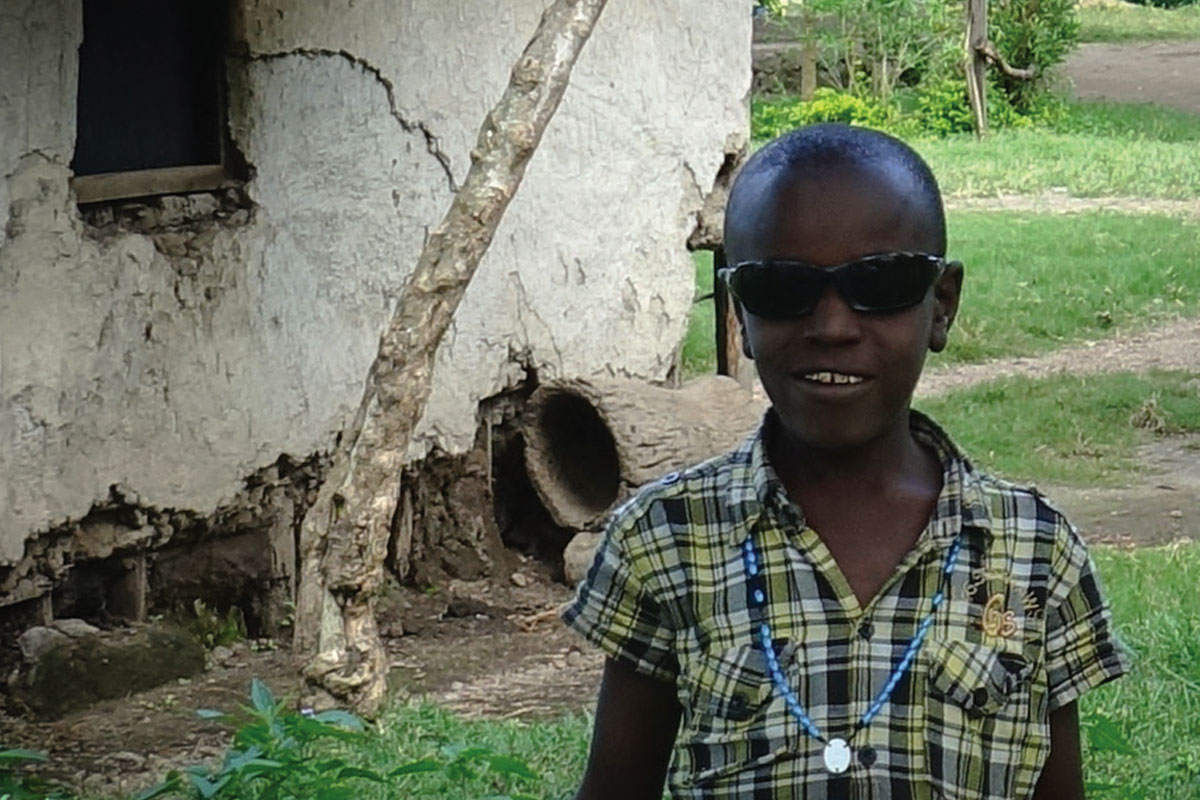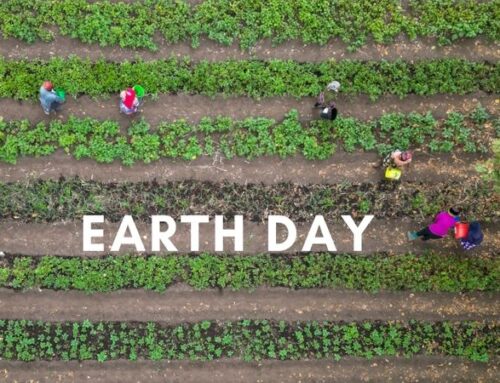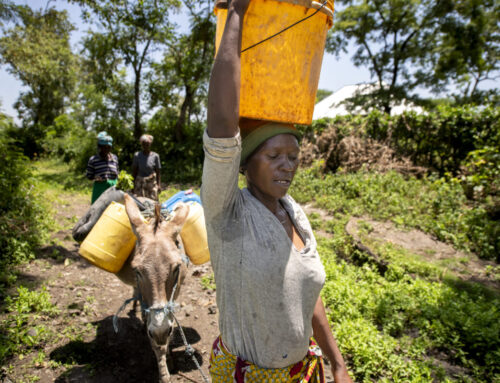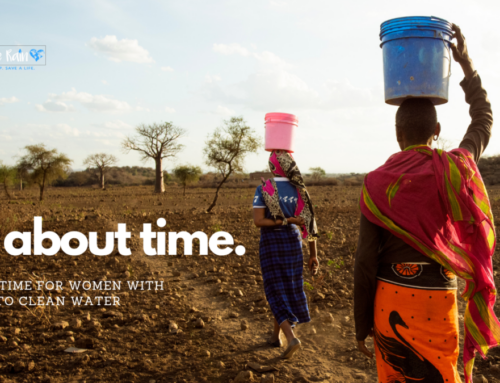Dickson’s grandmother won the lottery. She was the recipient of a residential rainwater harvesting system on her home. She lives in Maji Ya Chai, a village riddled with fluoride issues in the groundwater. Rainwater harvesting is the only way to get safe drinking water. Her life had been filled with hardship. She buried two of her children, most of her family and her husband abandoned her. Her home is made of dung and when it rains the walls begin to collapse. She is raising her grandson Dickson whom she calls her angel.
At first glance, Dickson looks to be about 7. When you come face to face, it is clear that Dickson is severely visually impaired. His eyes are milky, bloodshot and irritated by the sun. When Dickson speaks it is clear he’s not 7. He is 16. He has never been to school. His body is stunted by HIV. His eyes are a byproduct of the disease he inherited. Dickson’s parents both died of Aids. Buried within months of each other. They knew he was HIV+ but refused to get him medical help as an infant. They feared the stigma more than they feared for his future. They were short-sighted. Dickson is not.
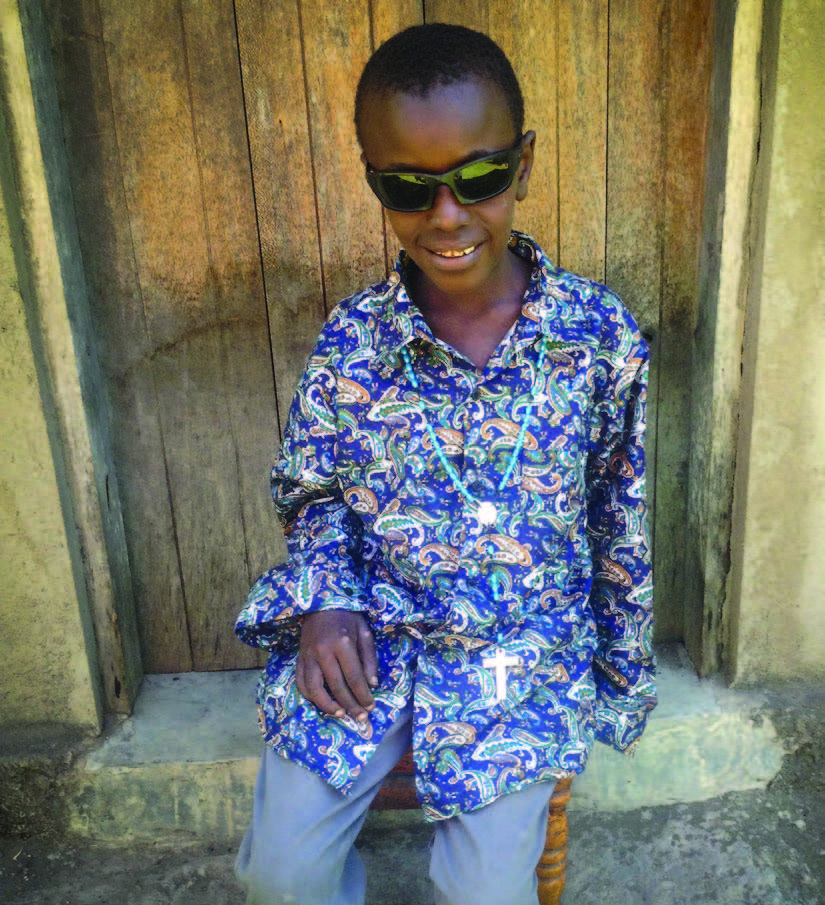 As I sit and talk to Dickson, his eye discomfort is painfully apparent. My Oakley sunglasses are sitting on my head. They have polarized lenses. I hand them to him in hopes that they might help. He puts them on tentatively. Keep them, I say. The moment looking at the world around him is not affiliated with pain, he smiles in a way that brightens the landscape around us. My heart expands.
As I sit and talk to Dickson, his eye discomfort is painfully apparent. My Oakley sunglasses are sitting on my head. They have polarized lenses. I hand them to him in hopes that they might help. He puts them on tentatively. Keep them, I say. The moment looking at the world around him is not affiliated with pain, he smiles in a way that brightens the landscape around us. My heart expands.
He shares his story with me and shows me the sores on his legs, open lesions that clearly need attention. We agree to enroll him in our medical program and to get him help. Dickson has been to the doctor once in his entire life. There is an HIV open clinic every Wednesday. It’s Monday. We agree to come back in two days to collect him and his grandmother. The following day, I see Dickson in the village, near to his grandmother’s home. He is wearing my sunglasses and is seemingly taller. Not because my sunglasses made him grow but because he sees a future with less pain. I wave at him and he comes running to the car.
He asks me to wait and runs in his house. The roof is sloped and looks as though it could fall in at any time. He reappears with a small black plastic bag. He hands it to me. It is filled with 6 eggs. He says he has to give me something to repay me. I ask him to keep the eggs so that he can get stronger. He says not to worry. He has four eggs left in the house. I tell him that no payment is necessary. That for me, we are simply in this together. He takes my hands and asks me not to deny him his expression of gratitude. I take his eggs and am changed forever.
Here is a boy who has every reason to be bitter, to feel abandoned by the world and denied a future. But he is not. His grandmother is right. He is an angel. We live in a time where our gratitude can get overlooked by our hurry. For Dickson, his expression of gratitude is an expression of his strength. He gave more than he kept. He is forever my example of how to walk in this world.
Dickson has been to the clinic three times since we met. He is on medication that helps him get stronger. His lesions are better and he smiles more at the polarized world he sees around him.
Dickson’s medical care so far costs less than my pair of sunglasses. Investing in our medical program invests in a future for people like Dickson. Whether his life is long lived or not, his attitude is what our world needs more of. We are so grateful to our donor family that Dickson’s future looks brighter each day. And because of the way he sees life, so does the world for the rest of us.
